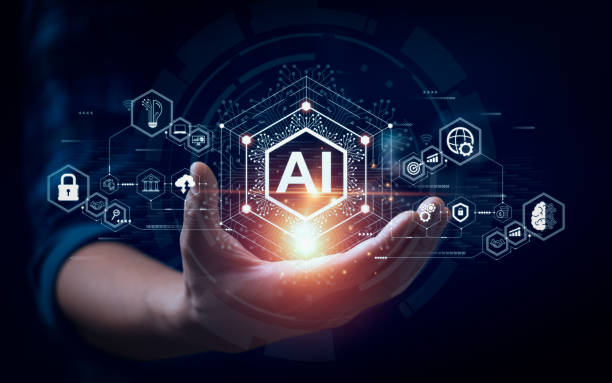Will AI Replace Writers? Exploring the Future Landscape with an L.A. Scholar-Poet

power of AI
Navigating the Intersection of AI and Literary Production: Challenges and Insights
In an era marked by both awe-inspiring technological advancements and mounting concerns over job displacement, the question of whether AI will replace human writers—and potentially reshape society itself—looms large. A distinguished scholar-poet, Jackie Wang of USC, delves into this topic, shedding light on the intersection of AI and the future of literary creation.
The impact of AI on the workforce has been felt across various sectors, as automation becomes increasingly prevalent. Industries such as television, music, and publishing have experienced seismic shifts, leaving writers grappling with dwindling residuals, reduced opportunities, and heightened uncertainty. Despite their significant contributions to the economy, writers often find themselves treated as expendable resources.
AI’s potential to exacerbate this situation has ignited a range of reactions. Presently, concerns about AI-generated scripts have fueled a Writers Guild of America strike, while writers have mobilized to demand fair compensation from AI industry leaders. Lawsuits alleging copyright infringement underscore the complexities at play.
As we ponder the ramifications of AI’s automation of labor, the prospect of universal basic income and shorter workweeks emerges. Whether this will narrow wealth disparities or exacerbate poverty remains a critical question for society.
Jackie Wang, a poet, scholar, and assistant professor, offers a unique perspective on these pressing matters. Having engaged in thought-provoking discussions on AI’s impact on humanity and literature, Wang’s insights shed light on our rapidly evolving landscape.
In a recent exchange, the intersection of AI and literary production emerged as a central theme. Wang’s poignant observation—“the last generation to experience raw human emotion”—prompted a deep reflection on the saturation of technological distractions that shape modern existence. The power of technology to regulate our lives, often in subtle ways, underscores the question of human agency.
The transformation of literary production through AI both intrigues and troubles scholars like Wang. A sentimentalist in some regards, she reflects on the millennia-old tradition of writing, unchanged from cuneiform tablets to modern keyboards. This constancy has fostered a connection between language and consciousness, which Wang fears might be eroded by AI-driven homogeneity.
The heart of Wang’s concern rests in the potential loss of language’s spontaneity and artistry—an attribute central to her identity as a poet. The interplay of emotion and consciousness, the rhythmic dance of words, risks being supplanted by AI’s calculated precision. While AI can mimic emotion, Wang emphasizes the importance of nurturing AI’s capacity for unconventional creativity, transcending mediocrity.
The evolving relationship between writers and machines prompts consideration. Wang highlights how technology has always shaped the writing process, from pen to keyboard. The collaborative potential between writers and AI takes center stage. Yet, notions of democratization in this context are complex, necessitating discussions about corporate concentration and economic models.
The evolving landscape of literary production forecasts potential upheavals. Writers may transition into prompt makers, directing AI-generated responses. Wang envisions a future where plot-driven fiction could be co-authored with AI, posing challenges for writers reliant on commercial work. Economic hardships among writers might exacerbate, influencing the artistic landscape.
AI’s influence on concepts like originality and plagiarism echoes past transformations. Wang’s perspective blurs the lines, embracing creative reconfiguration while addressing economic sustainability. Balancing the protection of living creators while harnessing AI’s capabilities emerges as a conundrum, spurring conversations around intellectual property.
Wang’s reflections extend to the global labor dynamics of AI. Parallel to historical shifts, AI’s impact resonates with the Industrial Revolution, reshaping industries and livelihoods. A postwork society, free from toil and profit-driven endeavors, resonates as a hopeful vision amid today’s technological onslaught.
In contemplating AI’s role in the future, Wang’s insights from the world of poetry shine brightly. In a world where poetry defies commodification, her musings on the superfluous yet essential nature of poetry provide an inspiring perspective. As AI amplifies the flow of language, the superfluity of poets might grow, their artistic spirit shining resiliently amidst change.
As society navigates the uncharted waters of AI, Wang’s insights offer a profound exploration of the human-machine collaboration. With technology advancing at unprecedented rates, embracing change while safeguarding the essence of human creativity remains a paramount challenge. The delicate dance between AI and writers, laden with complex questions of authenticity, labor, and transformation, will shape the narrative of the future of literature.



